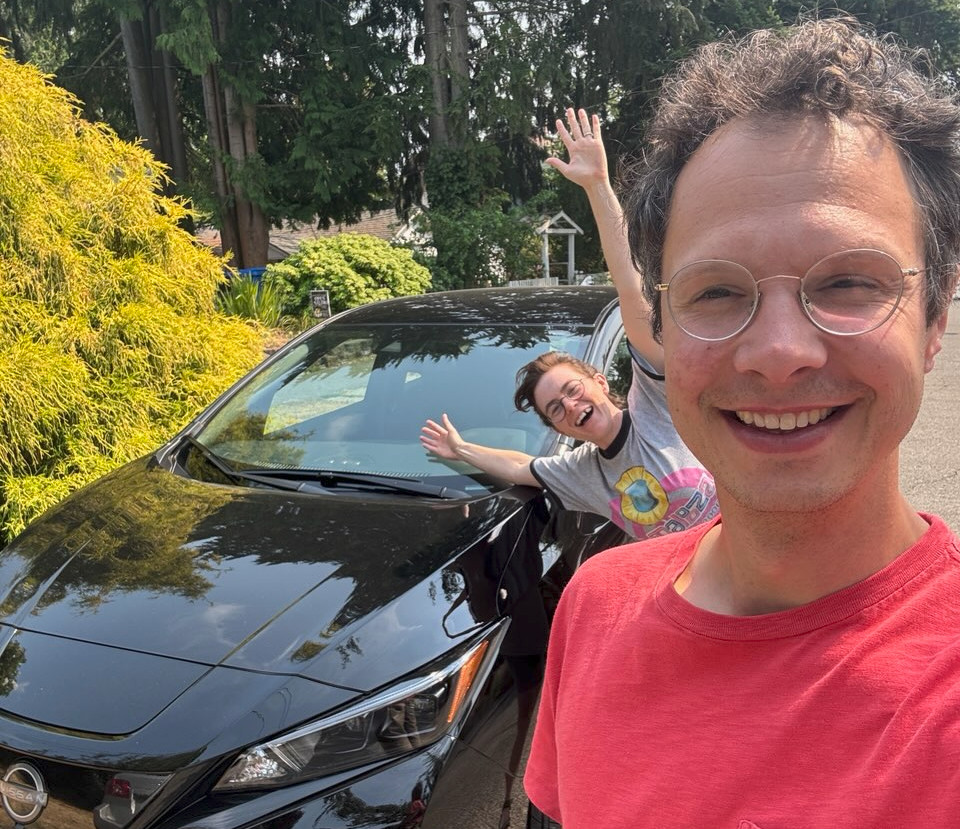Krista Cortese and her husband Dominic, both artists living in Seattle with their toddler, were struggling with the cost of gas and maintenance for their 2003 Mazda hatchback. They had been considering an electric vehicle for years, but the high cost was out of their reach. However, with the launch of the Washington EV Instant Rebates Program, designed to provide rebates to income-eligible consumers who purchase or lease electric vehicles, they were able to lease a new Nissan Leaf SV Plus for $102 per month, significantly lower than their previous costs. The program aims to make environmentally friendly transportation more accessible to lower-income individuals like the Corteses.
The program has received positive feedback, with over 1,000 EVs being purchased or leased by lower-income residents in Washington within the first few weeks of its launch. The Washington State Department of Commerce, which administers the program, reported that approximately $8 million of the $45 million allocated for rebates had been issued. The state has been a strong proponent of electric vehicles, with a goal for all new vehicles sold in the state to have zero carbon emissions by 2035. The increased availability of affordable EVs, combined with the new rebate program, is expected to promote more equitable access to electric transportation.
While the program has been successful in increasing EV sales to lower-income individuals, there have been critics who question its cost-effectiveness and climate benefits. Some argue that the funds used for the rebates could be better spent on other climate strategies, such as certified carbon offsets. Critics suggest that the short-term rebate program may not have a significant impact on achieving the state’s EV sales targets. Despite these criticisms, state leaders promoting the program highlight the importance of reducing carbon emissions and air pollution, especially in lower-income communities that are disproportionately affected.
The Washington EV Instant Rebates Program has specific eligibility criteria, including income thresholds based on household size. Rebates are available for new and used EVs, with varying amounts based on the lease or purchase term. Additionally, the deal includes discounts for state sales tax and federal tax rebates, depending on the vehicle’s price. Consumers must fill out an eligibility form at the dealership and are responsible for ensuring accurate income information to avoid repayment. The program aims to encourage more Washington residents to switch to electric vehicles for environmental and economic benefits.
For the Cortese family, the purchase of the Nissan Leaf SV Plus has been straightforward, and keeping the vehicle charged has been easier than expected. With an estimated range of 212 miles, they only need to charge the car once or twice a week using a 240-volt outlet in their garage. This setup is convenient for Krista Cortese, who uses the outlet to power her ceramics kiln for her artwork. The cost of charging the electric vehicle is expected to be around $10 per month, making it a cost-effective and environmentally friendly alternative to their previous gasoline-powered vehicle.
Overall, the Washington EV Instant Rebates Program has been successful in increasing EV adoption among lower-income residents in the state. By providing immediate rebates at the time of purchase or lease, the program has made electric transportation more accessible to individuals who may have previously been priced out of EV ownership. While there are criticisms regarding the program’s cost-effectiveness, state leaders believe that promoting electric vehicles is essential for reducing carbon emissions and air pollution, particularly in vulnerable communities. With the availability of affordable EVs and incentives like the Washington EV Instant Rebates Program, more Washington residents are expected to switch to cleaner and more sustainable modes of transportation in the coming years.


